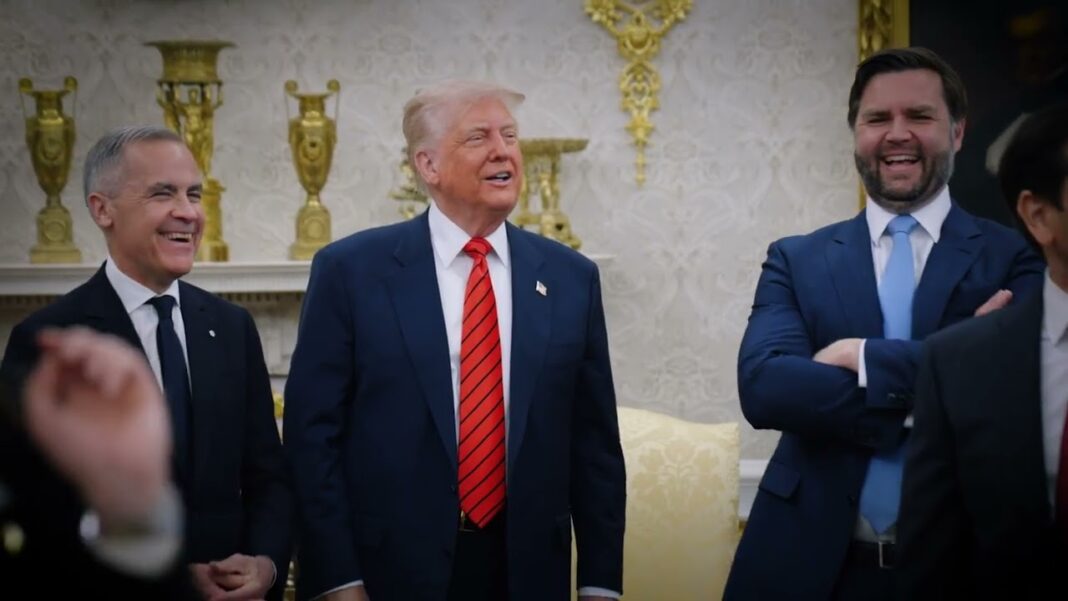The White House cited Canada’s ‘failure’ to curb fentanyl trafficking and its continued use of counter-tariffs as reasons for the increase.
U.S. President Donald Trump has followed through on his threat to raise tariffs on Canada from 25 percent to 35 percent starting on Aug. 1, with the White House saying the country has “failed” to stop the flow of fentanyl and other drugs into the United States through their shared border.
Products under the United States-Mexico-Canada Agreement (USMCA) continue to be exempt from the tariffs. The White House says products that are transshipped to evade the 35 percent tariff will be subject to a 40 percent rate. Canada is also subject to sectoral tariffs, including on steel, aluminum, copper, autos, and lumber.
“Canada has failed to cooperate in curbing the ongoing flood of fentanyl and other illicit drugs, and it has retaliated against the United States for the President’s actions to address this unusual and extraordinary threat to the United States,” the White House said in a statement on July 31.
“In response to Canada’s continued inaction and retaliation, President Trump has found it necessary to increase the tariff on Canada from 25% to 35% to effectively address the existing emergency.”
The announcement on July 31 came ahead of the Aug. 1 deadline for countries to reach new trade deals with the United States. Trump had earlier warned Prime Minister Mark Carney of his intention to raise tariffs on Canada, citing as concerns Canada’s supply management for eggs and dairy, fentanyl trafficking, as well as Ottawa’s counter-tariffs on the United States.
Unlike Canada, Mexico was spared an increase in tariffs, with Trump saying on July 31 that he won’t raise tariffs on Mexican goods for 90 days. His announcement came after he spoke on the phone with Mexican President Claudia Sheinbaum.
Washington’s initial tariffs on Canada and Mexico were set at the same rate of 25 percent, with Trump citing concerns about fentanyl trafficking and illegal immigration as the reasons.
Earlier on July 31, U.S. Commerce Secretary Howard Lutnick noted that Canada is the only country besides China that has issued counter-tariffs against the United States. He also called Canada’s decision a day earlier to recognize Palestinian statehood “tone deaf.”
Trump had said earlier on July 31 that it would be “very hard” to reach a trade agreement with Ottawa after Carney said his country would recognize a Palestinian state. However, Trump said later the same day that Canada’s decision on Palestine is “not a deal breaker.”








